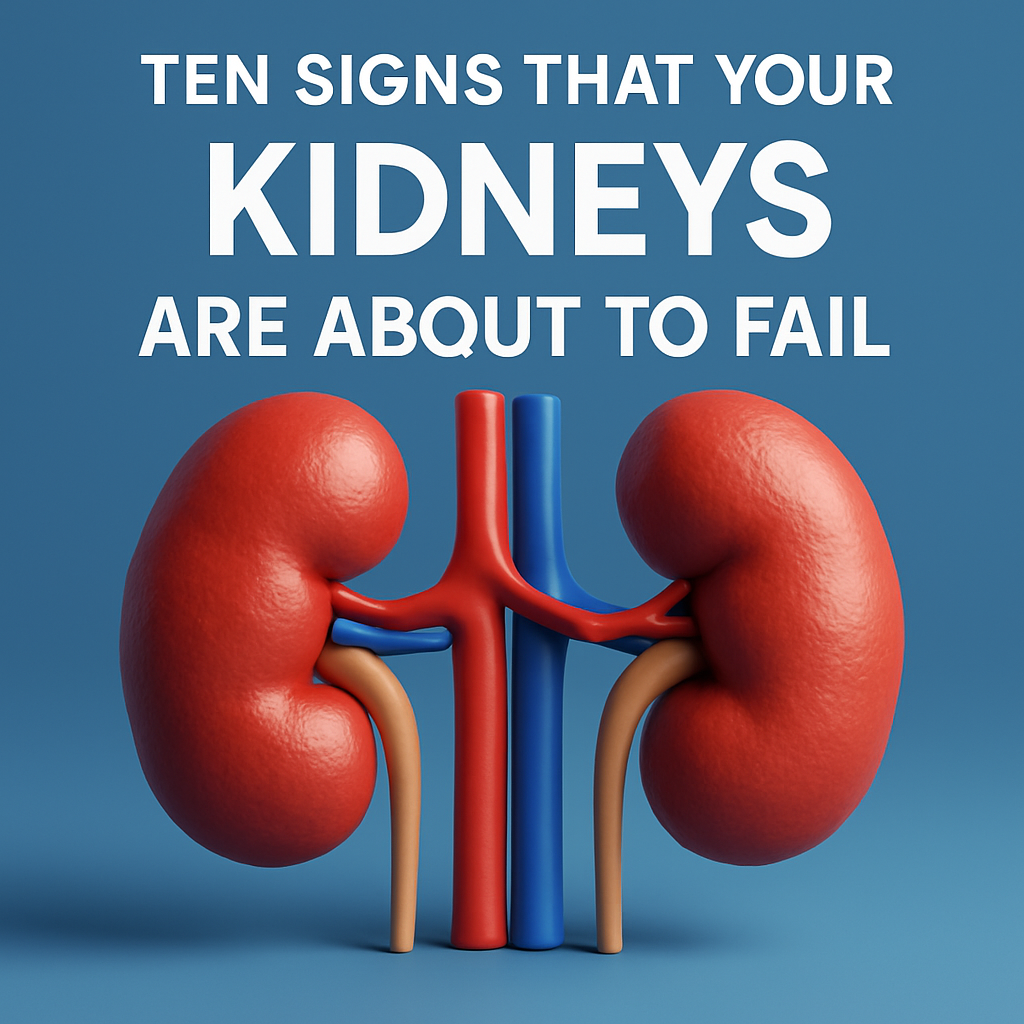Ten Signs That Your Kidneys Are About To Fail
Daniel Ochu - Ten Signs That Your Kidneys Are About To Fail
Ten Signs That Your Kidneys Are About to Fail
The kidneys are vital organs in the human body that play a crucial role in filtering waste products from the blood, regulating blood pressure, maintaining fluid and electrolyte balance, and producing hormones that manage various bodily functions. When kidney function starts to decline, it can lead to serious health complications, including kidney failure.
Recognizing the signs of impending kidney failure is essential for early intervention and treatment. Here are ten (10) signs your kidneys might be failing. Early detection could save your life. 💧
Changes in Urination: One of the first signs of kidney dysfunction is altered urination patterns. This may include frequent urination, decreased urination, or difficulty urinating. Some individuals may also experience nocturia, where they wake frequently during the night to urinate.
Swelling or Edema: When the kidneys fail to filter excess fluid effectively, it can lead to swelling in various parts of the body, especially in the legs, ankles, and face. This edema is a result of fluid retention.
Fatigue and Weakness: An insidious sign of kidney problems is chronic fatigue. As the kidneys become less efficient, the body may not receive enough red blood cells to carry oxygen, leading to anemia, fatigue, and a general feeling of weakness.
Shortness of Breath: Kidney failure can cause fluid to accumulate in the lungs, leading to difficulty breathing or shortness of breath, especially during physical exertion.
Nausea and Vomiting: Accumulation of waste products in the bloodstream can irritate the digestive system, causing symptoms such as nausea, vomiting, and loss of appetite.
High Blood Pressure: The kidneys play a critical role in regulating blood pressure. When they start to fail, it can result in hypertension that is difficult to manage with standard treatments.
Metallic Taste and Ammonia Breath: A buildup of toxins can lead to a distinct metallic taste in the mouth and ammonia breath, which are often described as unpleasant and foul.
Skin Rash or Itching: Toxin accumulation can also lead to skin problems, including rashes and persistent itching that may not respond to standard treatments.
Muscle Cramps: An imbalance in electrolytes, particularly calcium and potassium, can lead to muscle cramps and spasms, which are often exacerbated by kidney dysfunction.
Changes in Mental Clarity: Cognitive impairments, such as difficulty concentrating, confusion, or decreased alertness, can occur as toxins build up in the blood, affecting brain function.
If you or someone you know is experiencing these symptoms, it's crucial to consult a healthcare professional for evaluation and potential testing. Early detection and intervention can significantly enhance the management of kidney health and prevent progression to more severe conditions. Embracing innovative health solutions can provide the support necessary for optimal wellness.
Stay informed — subscribe to receive my future newsletters!"

